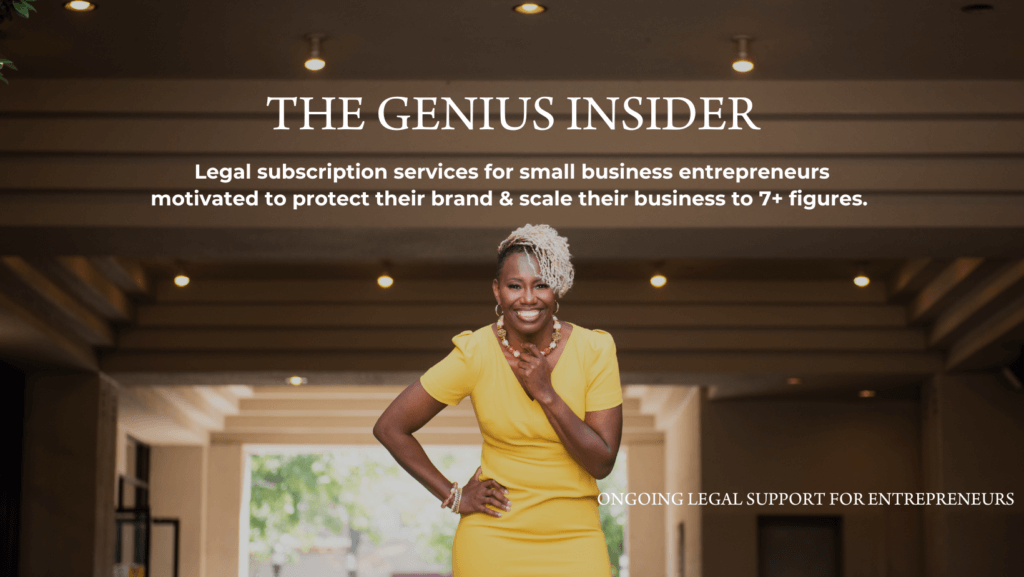Attorney Murray dives into the recent shifts in employee classification, sparked by Off the Mark’s move to hire its first full-time employee. This episode unpacks the contrast between the relaxed approach under the previous administration and the nuanced considerations introduced by the Biden administration.
Murray outlines the six key factors now under scrutiny, emphasizing the move from a singular focus on control and profit to a holistic examination of the employment relationship. As the new rule takes effect on March 11th, Murray encourages small and micro-business owners to reassess team classifications for compliance.
Join us to navigate the evolving landscape of employee classification, understand its impact on your business, and share your thoughts on these regulatory changes. Tune in now for a concise exploration of this crucial topic.
Listen on Apple Podcast, Spotify, Google Podcast, or Stitcher.
Today's episode covers:
- The Reason for the New Classification Rule
- Six Key Factors in Classification
- The Need for Reassessment of Team Members Status
Resources and links mentioned in this episode:
- Join the Genius Insider
- Leave a Review on Apple Here
- Schedule a Consultation With Attorney LaConya Murray
About the Own Your Genius Podcast
The Own Your Genius podcast is the perfect mix of business, law, and mindset to help black entrepreneurs succeed in business and life.
Join Attorney LaConya Murray each month as she and guest share their entrepreneurial journey, tricks of the trade, and their secrets to getting out of their own way to succeed.
Inspired by her grandmother, the community bootlegger Attorney Murray‘s passion for helping entrepreneurs started early. Today she helps entrepreneurs throughout the country protect their brand, content, and ideas through trademarks, copyrights, and business development.
Until next week, keep building your business, growing your brand, and owning your genius!
Episode Transcript
Hello Geniuses. Before we get started, I just want to give two shoutout. One is to Jackie B who listened to episode 136 on Spotify and she left a note. And she says, I love you for showing up genuinely. And then the second shout out is to AP Academy who caught the podcast on YouTube was to episode 132. And he says, good info in the beginning you said ‘peopling.’ What do you mean? I never heard ‘people’ used as a verb. I appreciate both of you for not only tuning in, but also taking the time to engage with me. It means a lot. You know, sometimes it feels like I’m out here calling out on a CB radio, trying to see if anybody’s out there. I’m glad to know that there are people tuning in. But AP Academy, to answer your question, when I use people as a verb, I simply mean that I’ve gone out and I’ve interacted with other people. I am an introvert by nature, so it takes a little extra effort for me to go out and network and be amongst the people. I’ve just started calling it ‘peopling.’ I don’t know why I do that or did that, but that’s my thing. When I go out and network and I interact with other people, that means I am ‘peopling.’ So that’s the answer to your question. Again, thank you so much for engaging with me and listening to the podcast. I really appreciate it. Now, I will tell you that I had a whole another topic.
For today’s podcast, but when I saw this post on IG, I knew that it was something worth exploring. For those of you who don’t know, Off the Mark is preparing to hire their first four-time employee. Thank you. We currently work with two virtual independent contractors, but I need a little bit more control over how and when the work is done. And this is why I thought of the timing for the Biden administration’s change to the employee classification was worth talking about right now. Because it’s something that I’m going through, and I feel like there are others out there who might be going through the same thing.
Welcome back to the Own Your Genius podcast where we discuss building businesses, growing brands and what else? Only your genius. I’m your host, Attorney LaConya Murray, owner of Off The Mark IP Solutions. Off the Mark is a boutique intellectual property firm representing innovative entrepreneurs aka geniuses who are looking to protect their brand and grow their business with ongoing legal support and business mentorship. We have a good one for you today, so let’s get started.
I know that I’m hiring an employee, but I noticed that sometime like last year and even this year, there are a lot of people who are talking about scaling back their teams. They went over the earlier years, and they just went crazy with hiring all these people. Now they’re scaling it back a little bit, but they’re not going just solo. They’re not going back to being a team of one, but they just reduced the number of people that they’re working with.
Today’s episode is a reminder that just because you work with a small team or a virtual team doesn’t automatically mean that the people you work with are contractors, especially under today’s administration. So back when Trump was in office like right when he was getting ready to get out, like he was getting ready to say, I would say he was getting ready to say deuces, but he wasn’t. We know how that turned out. But anyway, right when he was leaving the office, his administration implemented a rule that really made the classification of employee or independent contractor more relaxed. And one thing I want to let you know is that when it comes to the US Department of Labor, who is going to come up with these rules on how you should classify different, you know, how you should classify employees versus contractors, that’s going to be based off of whoever’s in office. Whoever’s in the office, that administration is going to have the authority over how that plays out, which is why you can see so much flip-flop depending on which person is in the office. In January 2021, like I told you, he was on the way out and he said, hey, let me just do this one more, do this one thing before I leave. Let me just do this, let me do this. They published a rule, and the rule was titled ‘Independent Contractor Status Under The Fair Labor Standards Act. It’s a 2021 IC rule. And in that rule, they provided guidance on how to classify independent contractors under the Fair Labor Standards Act. They were trying to get some guidance under that act as to who was classified as an employee and who was classified as an independent contractor. Now, their rule identified five economic reality factors to guide the inquiry of whether or not the worker was an employee or a contractor. And they relied on two of the five factors as core factors. And those factors were the nature and degree of the control and the opportunity for profit and loss, meaning essentially how much control does the worker have to make money for themselves. Those were the two out of the five that they said, hey, if they have these two, then the other three, they don’t even really matter. They really stated like, these are the core factors. That went into effect in March of 2021. And Biden’s administration basically said, we can wait and see what kind of havoc this is going to wreak, you know, because they are under the impression that this is something totally new. Like this goes against precedent, goes against case law. It goes against the history of how decisions have been made regarding independent contractors and employees. They were like, we can wait and see. Well, we won’t. Mm-mm, we’re not gonna do that. And we believe that it’s gonna cause more harm than good, so we’re just gonna go ahead and rectify this problem. Because what they said is never in history, we really relied on two factors to determine whether someone was an employee or a contractor. We have these factors, and we typically look at them. And secondly, it’s not five factors, but six. You’re missing one. Anyway, so they really wanted to get back to looking at the economic reality of the relationship, looking at the nature of the relationship, how much control the employer has over the worker. What does that mean? When I hear economic reality or when I saw economic reality, that language, like it literally made me pause and that’s why we’re doing this podcast. I needed to dig deeper because in my mind, without reading the rule itself, my first thought was, okay, does that mean if I hire a virtual assistant as a contractor, but I’m their only client and they’re financially dependent on me, are they an employee now?
I was like, I kind of freaked out a little bit. And the answer to that is not necessarily, not necessarily. The Department of Labor, what they want to do is analyze the relationship to explore how permanent it is, the skills required, the investment into the work facilities and the opportunities for profit or loss from these activities. They want to look at that plus how much control someone has or how much control the employer has.
Like I said before, Biden’s administration is like, hey, control is cool, those two factors are nice, but what about the other four? It takes a totality of this to determine whether or not someone is an employee or a contractor. And so those look like, and I’m just going to go over them with you, since now you must look at it, is the first thing you want to look at is to what extent are the services in question integral to the employer’s business? In the past, it’s kind of been like how integral the worker is to the business, but they’re not really looking at the worker itself. It can be anyone, but is that job they’re doing something necessary for the business to be successful? So that’s number one. Number two is this thing called basically the investment, the contractor’s investment into the facilities and the equipment. And just because they spent some money in order to provide this service for you does not necessarily mean that they are contractors. So they have to buy certain software and certain tools so they can do the job for you. That doesn’t necessarily mean that they’re a contractor. What they’re looking for is whether or not the investment that they made in equipment can help them generally support a business right, outside of you for other clients. Like, is it going to increase the workers’ ability to do different types of work or do more work? Is it going to help them reduce the cost of their business and is it going to help them extend their market reach? It’s really about how those, that investment helps them outside of you. So that’s something to keep in mind too. And again, that control part is there, how much control. Does the employer have over the employee? Are you telling them when to come to work? Are you telling them what to wear to work? Are you telling them how to do the assignment? Are you telling them when to do the assignment? All this stuff are you really dictating it and laying it out and they just have to pick it up and do it. Opportunities for profit and loss. And I wanted to use the example that they gave in the proposal for the rule change simply because I think it makes sense that it’ll bring it to light. So the example for opportunities for profit and loss, for example, you have a worker who works for a landscaping company, and they perform assignments only as determined by the company for its corporate clients. You have a company and you have a landscaping person. And the only work that this landscaping person does is work assigned by this company for the company’s corporate clients.
The worker does not independently choose their assignments. They don’t solicit additional work from other clients. They don’t advertise landscaping services, and they don’t do anything to reduce costs. The worker, they regularly agree to work these additional hours in order to earn more money. And the additional hours are from the company. They’re not going out and getting more work so they can work more hours. They’re solely dependent on this company work in additional hours. So what they’re saying is in that scenario, that worker really isn’t, he doesn’t really have the authority to make decisions about his own livelihood. If that makes sense, like they refer to it as managerial skills, but essentially, he’s not making, he doesn’t have the ability to make more money outside of this company. He’s dependent solely on this company for their work. Because of that, that person will be classified as an employee rather than a contractor. So we talk about opportunities for profit and loss. It’s opportunities that the worker has to increase the amount of money they have outside of the contract that they have. And it could be that the contract, instead of hourly, it could be per gig. But if you’re still solely dependent on that company. Then that can be an employee versus a contractor.
So the fifth one is the amount of initiative, judgment or foresight required for the success of the worker. Like how much judgment, how much foresight does this person need to have in order to be a successful enterprise? The sixth one is the permanency of the relationship. Meaning is this a short-term gig? This is only for, you know, is it seasonal? Is it for one month, is it specifically for this one assignment or is this an ongoing relationship and the same task will be enduring over and over again and yeah, that’s what they’re looking at. And one of the major differences between this rule and the one from Trump’s administration is that not one single factor is controlling. So with Trump, they said we’re going to look at the control and we’re going to look at the opportunity for the worker to make more money outside of the company. But Biden’s like, no, we’re going to look at it as a whole, as we have throughout history. If you go and you read the proposed rule, then it’s like a history lesson. They’re going all the way back. Back in 1947, we did this, in 62, we did this, and this case said this, and this case said this, and it’s a history lesson.
So no single factor is controlling. And then I will also say for anyone who wants to say, oh, well, my contract says that this person is working as an independent contractor. The written contract isn’t always the answer because what you have to do and what Biden’s administration is pushing for is viewing the actual day-to-day working relationship. So the contract may say one thing, but when you actually explore and go deeper, you’re gonna notice that, hey, this relationship isn’t as it seems on paper. I will say that this administration is definitely pro-employee. When in doubt, W-2 it out. It’s that. And finally, I will say that this rule goes into effect on March 11th. I will drop the link. If you want to read the rule, I’ll drop the link to that as well. And you have access to read that.
And I would say because this rule goes into effect on March 11th, now is the time to start evaluating your team classification, just going ahead and making sure that everyone has the right classification, everyone has the right status. If you have questions, feel free to schedule an audit, and I will help you with that analysis, and we’ll leave the link below. So that is today’s podcast. What do you think about these new rules?
Did they bring clarity? Because if you read the rules, one of the things they kept seeing is, you know, the 2021 rule wasn’t clear. It caused confusion, this, that, and other. Are the new rules clearer? And even if they’re clearer, you know, does it make it more? I guess that’s one question. Does it bring clarity? It’s question one. And my second question is, as a small or microbusiness owner, does this make it more difficult for you to hire the help that you need? Let me know in the comments.








Responses